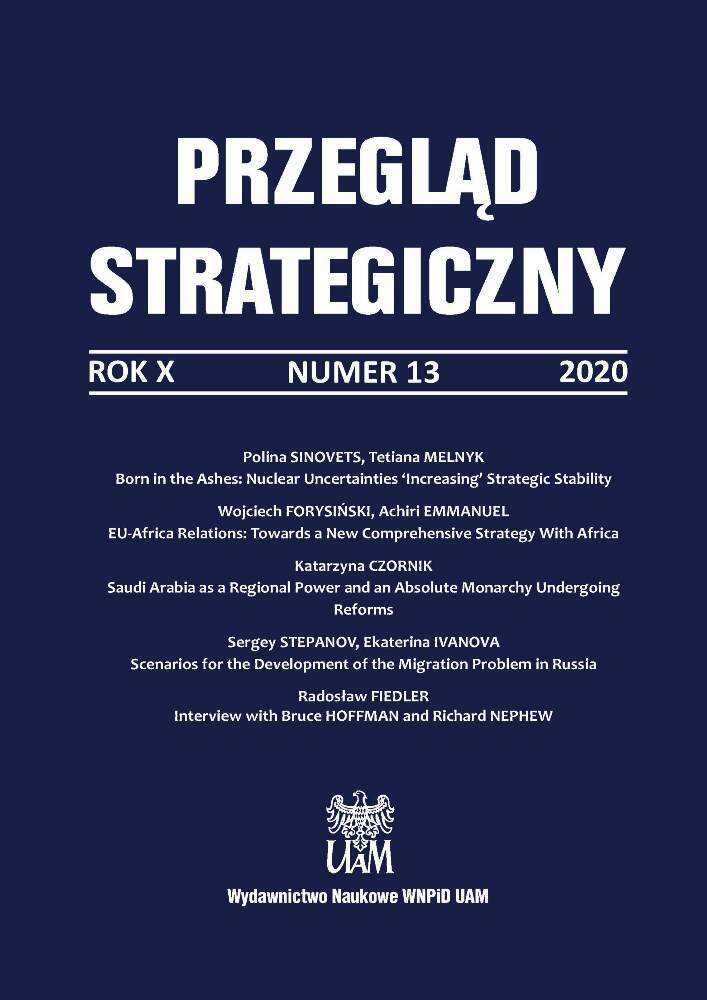Abstract
The purpose of this paper is to determine the impact of the foreign trade component on the formation of national economic security. Transformations occurring in the world’s economic development, the deterioration of the global financial environment, and increasing geopolitical tensions have intensified the main risks to the development of the global economy in today’s conditions. Therefore, national governments are actively using a wide range of tools to ensure economic growth and the appropriate level of competitiveness of their respective economies while ensuring national security, which is relevant for the study of the external component of national economic security.
To achieve the aim, general scientific and specific research methods are used, such as methods of analysis, abstraction and synthesis (in the study of protectionism as a policy and practice, instruments of neo-protectionism); methods of classification and systematic generalization (to systematize the forms of protectionism and neo-protectionism); economic and statistical methods (to assess the impact of foreign trade on the development of national economic security).
It is demonstrated that the intensification of the risks to the development of the global economy has led to the transformation of trade policies, changes in the use of foreign trade regulation instruments, which affects the economic security of various countries as a major component of their national security. The modern trade and economic policy toolbox used by various countries to ensure national security is analyzed. A comparative analysis of the development of foreign trade of the EU and Ukraine has been carried out, and the features of the influence of the foreign trade component on the formation of economic security have been determined.
It is demonstrated that, in the conditions of a global economic crisis, hidden forms of protectionism implemented at various levels of economic policy (global, regional, national), have spread. A classification of specific features and forms of neo-protectionism, that distinguish it from protectionism, is proposed. It is substantiated that global processes encourage national governments to implement deregulatory measures and improve the quality of institutions, while regulated economies contribute to the spread of corruption and grey areas in national economies.
References
Baldwin R., Evenett S. (2009), The Collapse Of Global Trade, Murky Protectionism, And The Crisis: Recommendations for the G20, Centre for Economic Policy Research, London.
Baldwin D. A. (1997), The concept of security, “Review of International Studies”, Vol. 23.
Dollar D., Krаay А. (2002), Growth is Good for the Poor, “Journal of Economic Growth”, Vol. 7, No. 3.
Economic Report of the President (2010), Transmitted to the Congress. Together with the Annual Report of the Council of Economic Advisers, United States Government Printing Office Washington.
Global Trade Alert, https://www.globaltradealert.org/global_dynamics/day-to_0208.
Gunnella V., Quaglietti L. (2019), The economic implications of rising protectionism: a euro area and global perspective, “Economic Bulletin Articles”, Vol. 3.
Handbook on Constructing Composite Indicators. Methodology and user guide (2008), Organization of Economic cooperation and development.
International Trade After the Economic Crisis: Challenges and New Opportunities (2010), New York United National Publication.
Nanto D. K. (2011), Economics and National Security: Issues and Implications for U.S. Policy, Congressional Research Service.
National Board of Trade Sweden, https://www.kommers.se/In-English/Publications/2016/Protectionism-in-the-21st-century/.
Organisation for Economic Cooperation and Development – OECD, http://www.oecd.org/index.htm.
Panchenko V., Reznikova N. (2017), From Protectionism to Neo-Protectionism: New Dimensions of Liberal Regulation, “International Economic Policy”, No. 2.
Regional trade agreements information system, http://rtais.wto.org/.
Report on G20 trade measures, https://www.wto.org/english/news_e/news18_e/g20_wto_report_july18_e.pdf.
Reznikova N., Panchenko V., Bulatova O. (2018), The Policy of Economic Nationalism: from Origins to New Variations of Economic Patriotism, “Baltic Journal of Economic Studies”, Vol. 4, No. 4.
Rose A. K. (2002), Do We Really Know that the WTO Increases Trade?, Cambridge, Massachusetts: NBER Working Paper, No. 9273.
Sachs J. D., Warner A. (1995), Economic Reform and the Process of Global Integration, Brookings “Papers on Economic Activity”, No. 1.
State statistics service of Ukraine, http://www.ukrstat.gov.ua.
Trade and Development Report 2011. Post-crisis policy challenges in world economy, UNITED NATIONS, Geneva.
United Nations, http://www.un.org/en/development/desa/policy/wesp/ index.shtml.
Watson W., Sallie J. (2013), Regulatory Protectionism: A Hidden Threat to Free Trade, “Policy Analysis”, No. 723.
World Trade Organization: official website, http://www.wto.org/english/tratop_e/region_e/region_negoti_e.htm.

